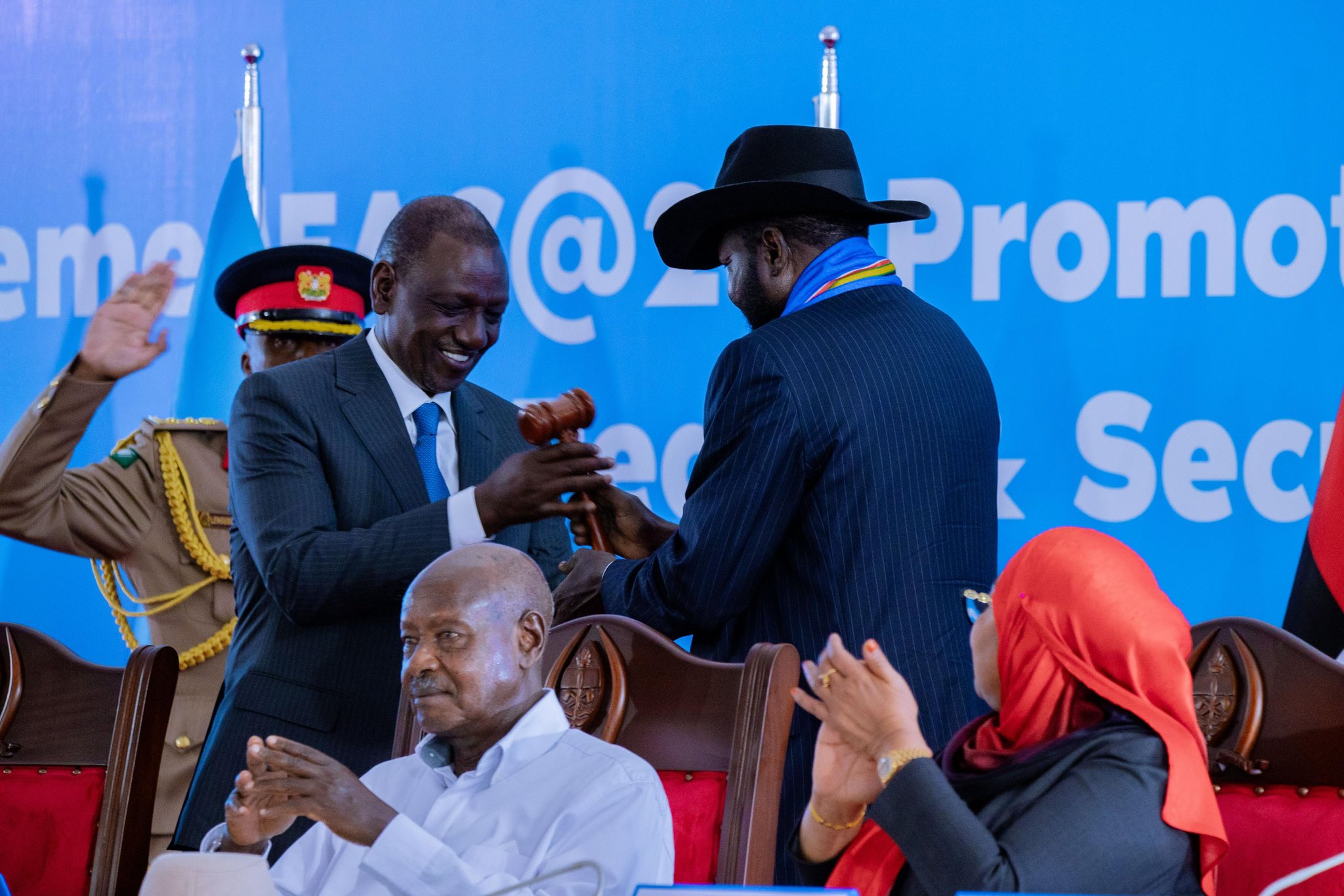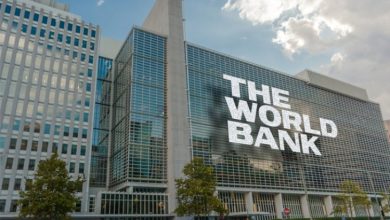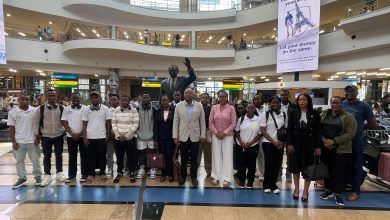Ruto takes EAC chair, urges unity in tackling regional challenges

ARUSHA: KENYAN President William Ruto officially assumed the role of chair of the East African Community (EAC) on Saturday, calling on fellow leaders to collaborate in addressing the pressing challenges facing the region.
President Ruto succeeded South Sudan President Salva Kiir.
The handover took place during the 24th Ordinary Summit of EAC Heads of State, in Arusha, Tanzania. The new chairman, Dr Ruto will chair the regional economic bloc for one year.
“The East African Community’s vision is to become a prosperous, competitive, secure, stable and politically united region,” President Ruto said in his address.
He added, “This noble aspiration unites our efforts and inspires our citizens. It reflects a shared belief that integrating our economies, harmonising our policies and celebrating our diversity will unlock unprecedented opportunities for collective prosperity.”
Dr Ruto highlighted his commitment to improving the quality of life for East Africans during his tenure.
He outlined key priorities, including enhancing regional competitiveness, promoting value-added production, boosting intra-regional trade and attracting greater investment to the region’s economies.
“Peace, security, political accountability and good governance form the cornerstone of our community’s stability. To achieve these goals, we must continue strengthening regional mechanisms that safeguard our sovereignty and collective security, while promoting inclusive governance that aligns with the aspirations of East Africans,” he said.
On the matter of sustainable financing, President Ruto underscored the importance of equitable contributions to the EAC’s financial stability.
ALSO READ: EAC SUMMIT: Bloc’s future shines brightly
The Kenyan leader emphasised that the success of the EAC is already evident in the daily lives of East Africans.
Giving an example on how EAC residents are reaping benefits from the bloc, Dr Ruto said small business owners in Jinja, Uganda, can now sell their products in Mwanza, Tanzania, while farmers in Kigali, Rwanda, can access markets in Nairobi, Kenya. He said entrepreneurs across the region are tapping into a market of nearly 300 million people.
“The EAC Secretariat is well-resourced and empowered to fulfil its mandate,” Ruto said. “These are tangible, transformative outcomes of our collective efforts to build a unified and economically integrated East Africa.”
Looking forward, Ruto expressed his determination to work closely with fellow EAC Heads of State to further enhance peace, stability and economic development in the region.
He also highlighted the importance of increasing intra-EAC trade, which currently stands at nearly 28 per cent and strengthening private sector engagement, particularly by empowering micro, small and medium-sized enterprises (MSMEs).
The expansion of the EAC, with the recent inclusion of South Sudan, the Democratic Republic of Congo (DRC) and Somalia, reflects the growing appeal of the bloc as a model for regional integration. However, Ruto said that this enlargement comes with the need for deliberate strategies to ensure the smooth integration of new members.
He also welcomed the recognition of Kiswahili and French alongside English as official languages of the EAC.
As part of the handover, outgoing Chairperson, South Sudan President Kiir, expressed confidence in the future of the EAC, citing the high expectations of East Africans for regional integration.
“From five years down the aspiration and expectations of our people, our regional integration still remains high. The people are inclusive, just and responsive to the integration process that addresses their daily needs for a prosperous, united East Africa,” Kiir said, adding “I am confident that our collective resolve will continue to drive us forward toward the realisation of our citizens’ aspirations.”
Kiir also spoke of the EAC’s progress, particularly in peace and security, which he prioritised during his term.





